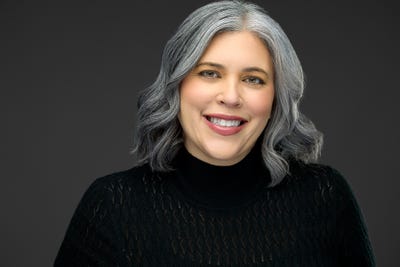Seasonality and How it Can Affect Your OfferingsSeasonality and How it Can Affect Your Offerings
Use seasonal changes to maximize your business strategies

In the wedding and event industry, peak season runs from late spring to early fall—a time when caterers, planners, and photographers must navigate schedules that are packed to the brim. Those with experience in the industry know which months they’re busiest and which months allow more wiggle room in their calendar.
Though peak event season is well-known, many overlook how each individual season can impact one’s business. Depending on the time of year, your clients could expect changes in pricing, weather, and even the overall timeline of their big day.
So, what can you do to keep up with the changes? Here are a few strategies to adjust your offerings to align with the seasons.
Hire enough staff
Staffing is one of the key components of a successful event. Your team should be able to handle the number of guests at each event, so if you’re short-staffed, you’ll want to prioritize hiring. The last thing you want is to try and make a great impression without enough people there to help!
“Weddings definitely have ‘high’ and ‘low’ seasons, so make sure your staffing is in place to cover increased demand,” confirms Betsy Scott of Hudson Valley Weddings at The Hill.
Frank Guertler of Bunn DJ Company - Richmond, VA adds, “Fall is a busy wedding season, so ensure staffing is at full capacity and always have backup personnel and equipment ready.”
With many companies rebuilding from the pandemic, hiring might not look the same as it did before. If you’re not ready to hire full-time employees, consider looking into contractors or temp workers to stay on top of busy season.
Switch up the menu
Pumpkin spice in the fall, peppermint around the holidays—we’re all familiar with the flavors of each season! Different months complement different tastes, so make sure your offerings reflect what’s in season. Likewise, ensure your clients know the dishes and cocktails that will make the most sense for their special celebration.
“Summer or shoulder events in the desert see a lot more white wine consumed than red and refreshing signature cocktails, and the food offerings are often lighter and more refreshing,” explains Cathy O’Connell of COJ Events. “Save the soup and the short rib for the fall!”
Peter Mitsaelides of Brooklake Country Club and Events echoes this sentiment, noting, “Changing seasons mean a shift in locally sourced produce. If clients want to include it on the menu, let them know what’s typically available and suggest alternatives if an item is scarce.”
Seasonal menus don’t have to mean sticking to your tried-and-true flavors, either. Think like a creative and look beyond the “usual suspects,” bringing in under-appreciated seasonal ingredients and pairing them with innovative spice blends!
Focus on your off-season
Summer may be incredibly hectic, but it’s the slower months that allow you to truly grow your business. When things aren’t so busy, remember to focus on your business goals. Take an entire day to map out your progress and the steps you need to take to remain booked out.
“Take advantage of those lulls in the calendar to focus on your business plan and marketing strategies,” Guertler emphasizes. “In addition, working during those times sets you up for being booked during prime event seasons.”
While you should definitely book that weekend getaway or sabbatical for off-season, don’t leave your business to collect dust until busier months! Maximizing your downtime as a business owner is essential for seeing growth and accomplishing your big-picture goals.
Cultivate strong relationships
Regardless of the season, it’s always important to focus on your relationships in the wedding and event industry. Networking can significantly impact what you learn and how you grow your business, so take advantage of the connections you make throughout the year.
Mitsaelides says, “Make strong food and vendor relationships a year-round priority. And continue to find other reputable purveyors to add to your resource chain.”
Adjusting your offerings throughout the year is a smart way to keep up with the trends and meet your clients’ needs. And each year, you’ll learn more about common industry practices and how the seasons impact your services. Don’t be afraid to switch things up so long as you know it’s what your ideal clients are looking for from you!
Meghan Ely is the owner of wedding PR and wedding marketing firm OFD Consulting. Ely is a sought-after speaker, adjunct professor in the field of public relations, and a self-professed royal wedding enthusiast.





